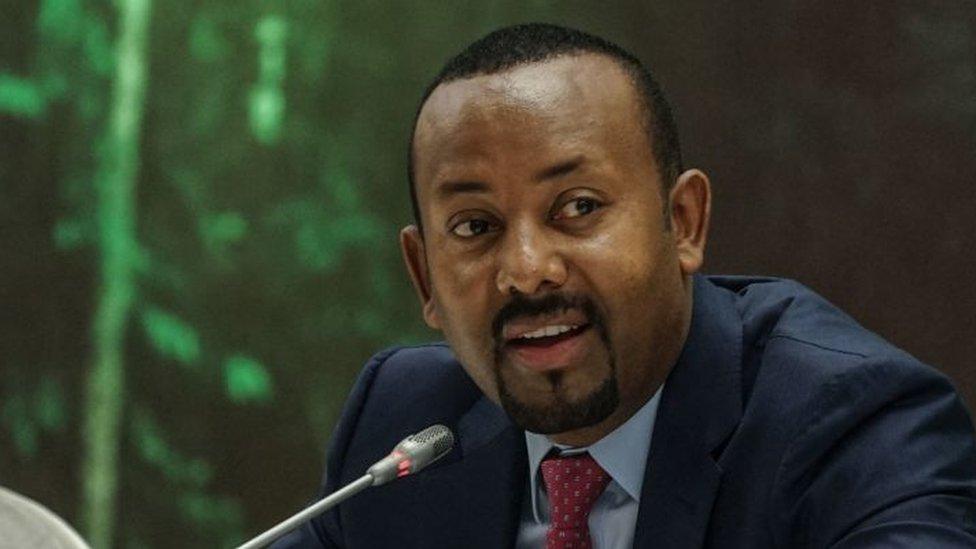Ethiopia referendum: Sidama poll could test Prime Minister Abiy Ahmed
- Published
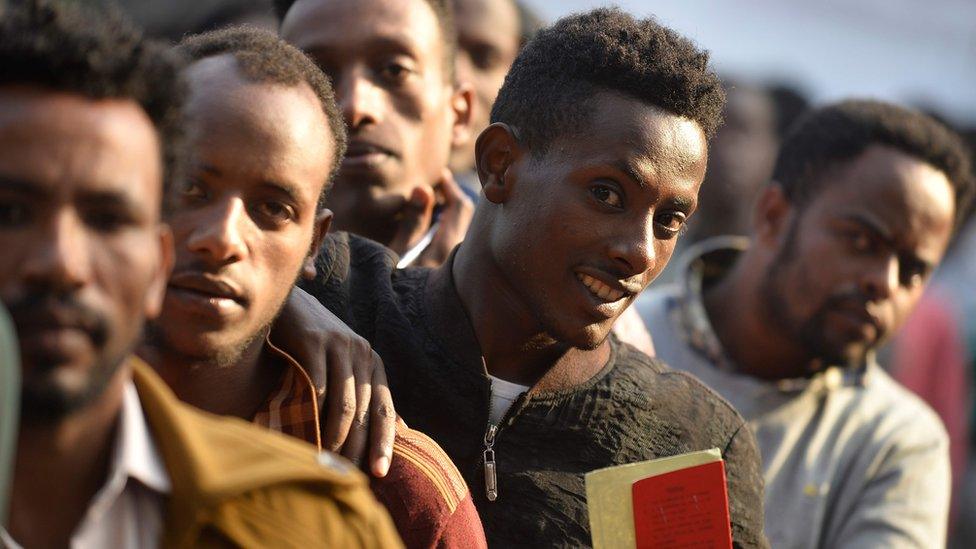
There are more than two million registered voters
A referendum in the south of Ethiopia is being seen as a test of Prime Minister Abiy Ahmed's abilities to control the forces of ethnic nationalism, which have threatened to increase divisions within the country.
More than two million people in what is known as the Sidama zone are able to vote on whether they want their own regional state within Ethiopia's federal system.
Voting got off to a calm start on Wednesday morning with long queues of people being seen in the main city, Hawassa.
The referendum will see if tensions around ethnic separatism can be resolved peacefully.

Also, ahead of a general election scheduled for May next year, the vote is a test for the country's electoral process.
Why is this happening now?
Since coming to power in April 2018, Prime Minister Abiy has been praised for his wide-ranging liberalising reforms.
He has transformed what was considered a tightly controlled security state. He also spearheaded a peace process with long-time foe Eritrea - a move which won him this year's Nobel Peace Prize.
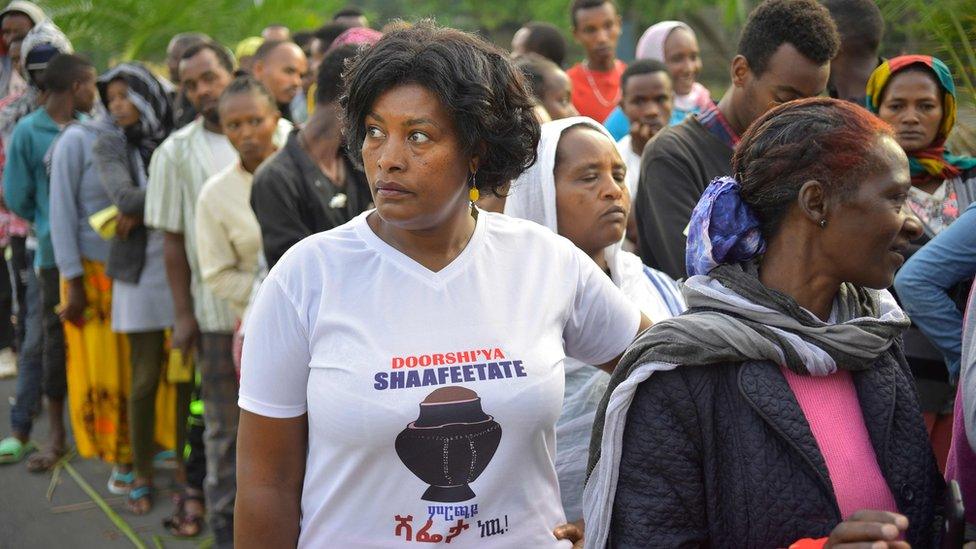
Voting has been peaceful in Sidama's main city, Hawassa
But his more relaxed approach to organisations and parties campaigning for greater rights for different ethnic groups has lifted the lid on underlying tensions. Clashes in different parts of the country have forced an estimated three million people from their homes in the past 20 months.
The referendum on creating a new region is part of a constitutional process that it is hoped could help satisfy ethnic ambitions in one part of the country. The constitution says that every ethnic group has the right to demand their own regional state.
A delay in holding the vote in Sidama earlier this year, triggered violence in which at least 25 people died.
What do those backing a Sidama regional state want?
Ethiopia's 1995 constitution created nine regional states, which are mostly based on ethnicity. In other words, Tigray is dominated by Tigrayans, Amhara is dominated by Amharas, and so on.
But the Sidama became part of the Southern Nations, Nationalities and Peoples' Region (SNNPR), home to more than 50 ethnicities.
Making up some 4% of the population, the Sidama are Ethiopia's fifth largest ethnic group, and many feel that they deserve greater political power and recognition.
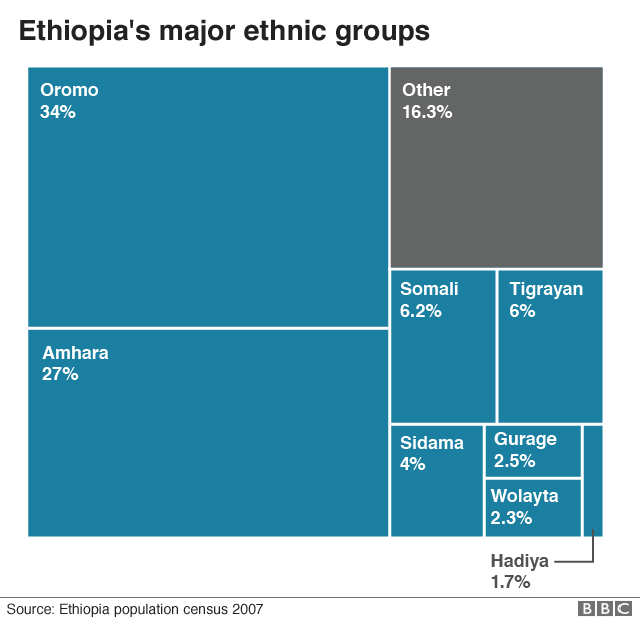
Under the previous constitution there was a separate province known as Sidamo, which, though it contained several ethnic groups, recognised the Sidama in its name.
A new federal state would mean the Sidama could make their own policies, control a regional police force and be in charge of a budget that could be spent on the priorities of the Sidama people.
It would also give them greater linguistic and cultural recognition.
One man waiting to vote told the BBC: "This is the happiest day of my life. I believe this is a day signalling peace and freedom. I believe the people will get peace now. So the joy I feel inside is incomparable."

You may also be interested in:

What are the implications of creating a new state?
While there does not seem to be much opposition among the Sidama for the proposed new regional state, there are concerns that this referendum could set a precedent for other ethnic groups to follow.
For example, within SNNPR some among the Wolayta and the Hadiya peoples are also agitating for their own regional states. Similar calls for greater autonomy can be heard from groups in Amhara and Tigray.
The challenge for the prime minister and the government will be how to appear to be dealing fairly with all these demands without encouraging further tension, or risking further divisions within the country.
How does the vote work?
To take part in the vote, people had to prove that they had been living in the Sidama administrative zone for at least six months.
On the ballot paper, voters will be asked to mark one of two boxes.
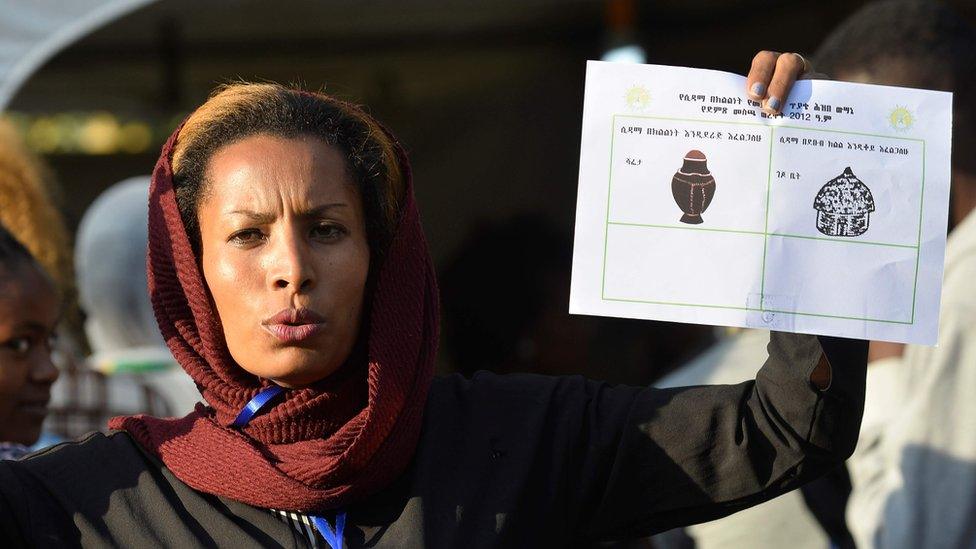
Polling officials have been explaining the ballot papers to the voters
Those who want a new regional state will mark the ballot paper next to a symbol of a shafeta, a Sidama traditional bowl or jar. Those who want the Sidama regional zone to remain within SNNPR will mark the ballot paper next to the sign of a hut.
The electoral commission says the result should be known on Thursday.

Follow us on Twitter @BBCAfrica, external, on Facebook at BBC Africa, external or on Instagram at bbcafrica, external

- Published27 June 2019
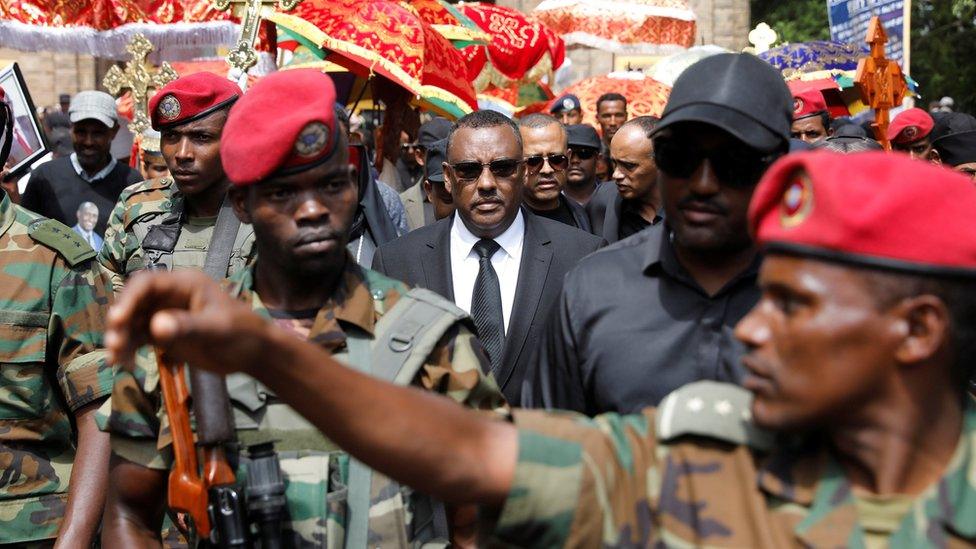
- Published29 June 2019
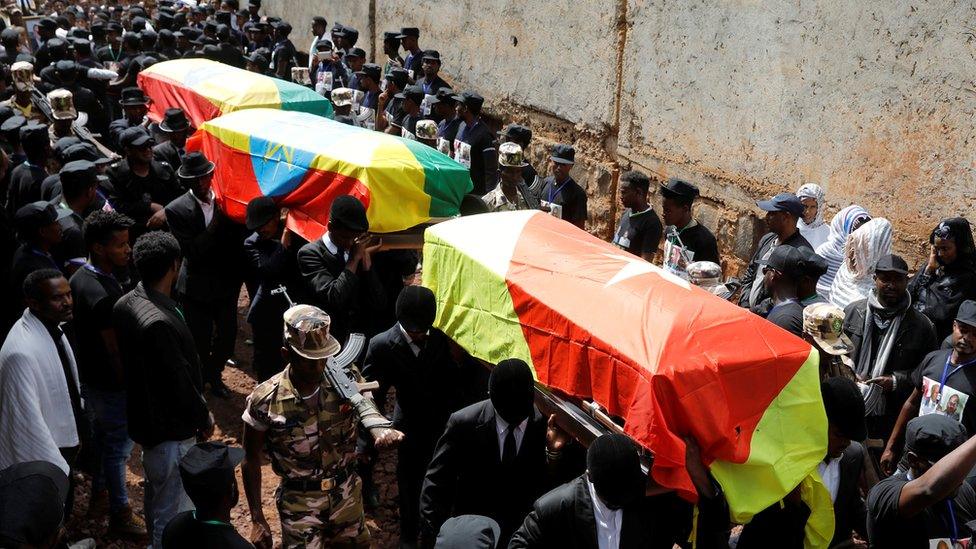
- Published11 October 2019
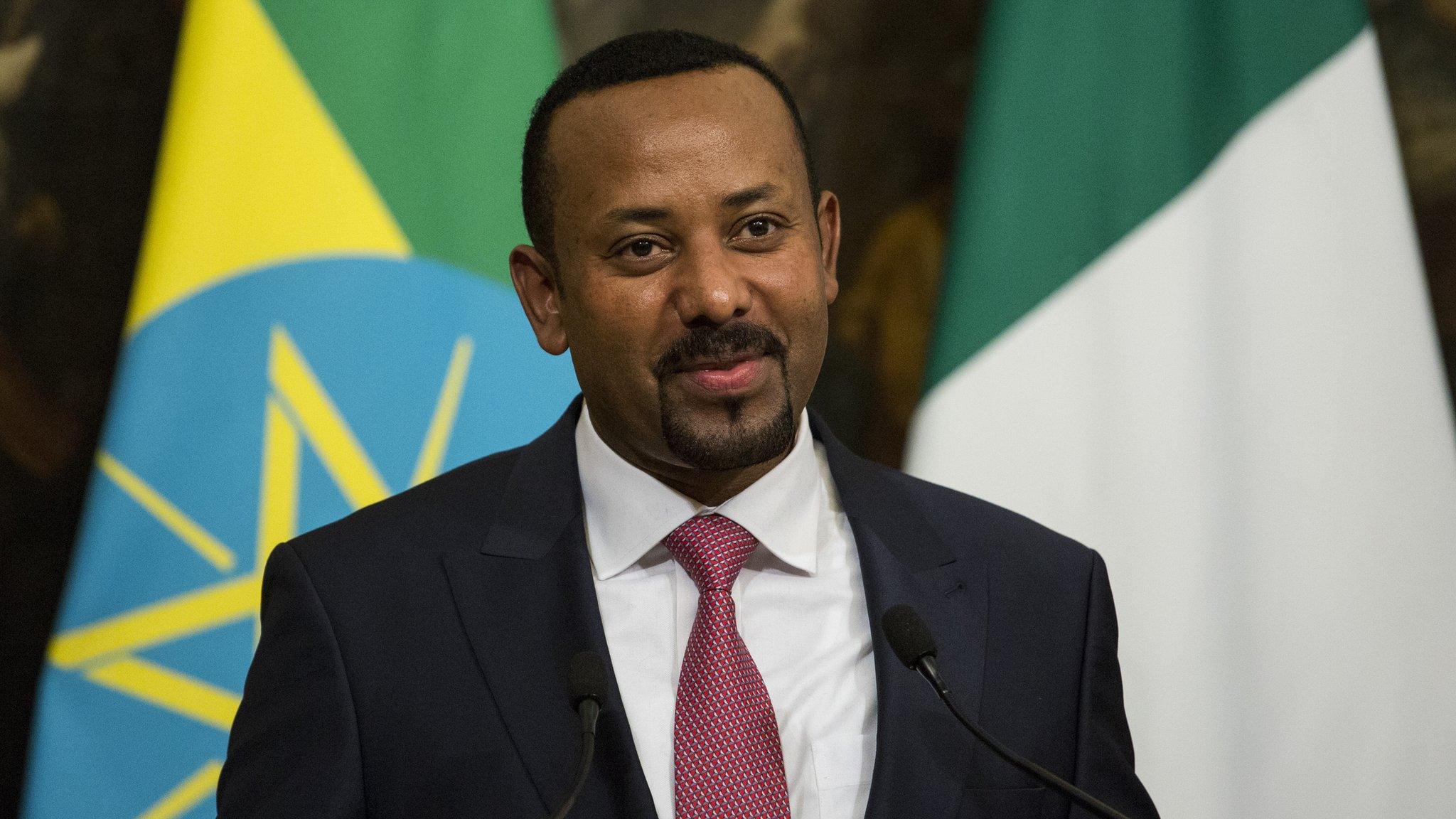
- Published11 October 2021
